Top: New pieces of kpokolo in Gbaryama, Gbarpolu County. The DayLight/Gabriel Parker
By Esau J. Farr and Philip W. Quwebin
GBARYAMA – People in Gbarpolu are secretly harvesting Kpokolo, a boxlike timber the Forestry Development Authority (FDA) said it banned last year.
In late January, The DayLight photographed newly produced kpokolo in Gbaryama, a town in the Gbarma District about 79 miles from Monrovia. Hundreds of fresh kpokolo were placed on an open field just outside the town.
Townspeople revealed smugglers, who reside outside of the town, hired a gang of chainsaw operators to harvest kpokolo. Once harvested, the woods are transferred by a crane to a pickup, which then brings them to a location. Thereafter, they are loaded onto a container truck at night.
“They can hide it and take it away at night so, people can’t easily see them in the day,” Armah Dukuly, the Town Chief of Gbaryama Town. “We don’t get that power to stop them.”
More than three weeks later, The DayLight revisited Gbaryama and found that the kpokolo had been taken away. Journalists photographed tire impressions matching the description of a truck on the now-cleared field. About 14 pieces of the illegal wood remained there. The illegal loggers had transported the rest.
There were other kpokolo in the forest. DayLight journalists took a 15-minute ride from Gbaryama on a motorcycle taxi to a forest footpath leading into the woods.
In the forest, reporters saw short round logs that were meant to produce kpokolo. Timber remnants could be seen on the floor of the forest. Loud vroom noise from at least four chainsaws buzzed at different locations.
Dukuly and other chiefs and elders told The DayLight the four men negotiate with farmers in Gbaryama, enter into a verbal agreement and start the harvesting. They said the operators pay the farmers up to L$550 for a piece of kpokolo, corroborating previous reports of locals’ involvement in the illegal trade.
People said the illegal loggers built tents made of tarpaulins in the forest to conduct their operations.
“Most of the time, they are in the forest.],” said Varsay Sirleaf, one of the oldest persons in Gbaryama Sirleaf.
A recent report by the US-based Forest Trends found that kpokolo threatens local communities, chainsaw millers and Liberia’s revenue. It uses the chainsaw milling subindustry to veil its activities, using the same workforce and timber sources, the report said.
But the difference between them is stark. Chainsaw-milled timber measures two inches and below, while Kpokolo can be up to five times thicker, or more.
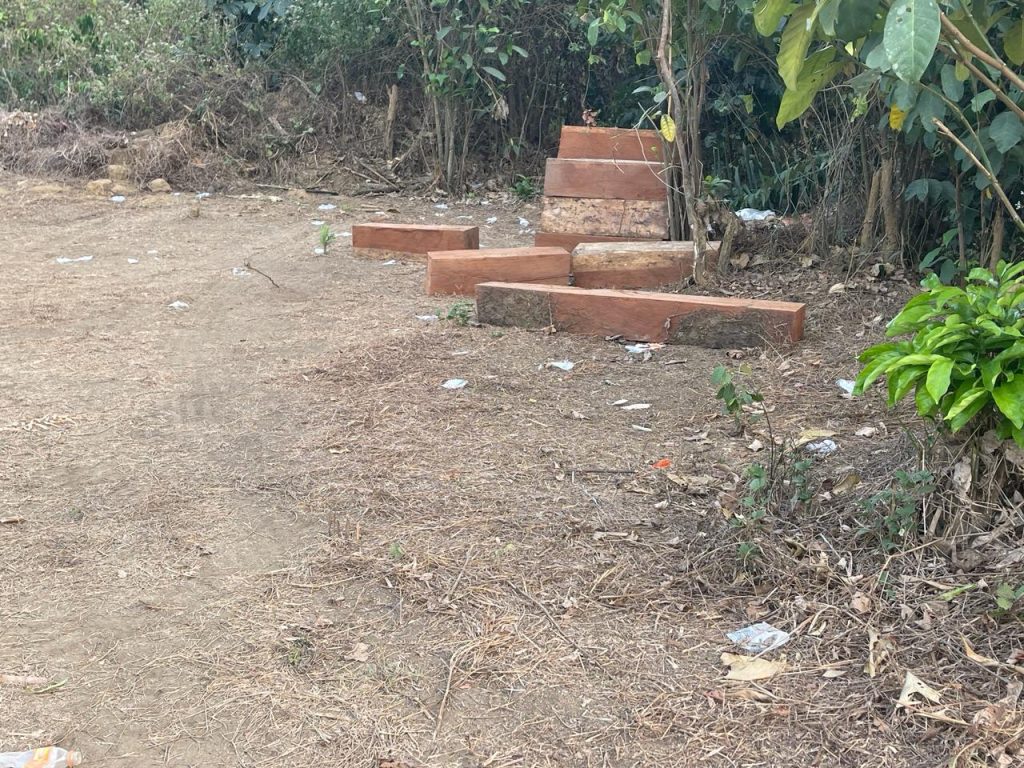
The kpokolo in Gbaryama were between two and four times the industry-accepted size of chainsaw-milled timber. The ones on the opened field were about six inches thick, based remaining ones there.
‘I felled few’
Four men conduct the kpokolo activities in Gbaryama, three of which The DayLight had previously investigated. The men are Saah Joseph (not the Montserrado lawmaker), one only identified as Sahyo, James Kelley and Richard Flomo.
Joseph has harvested kpokolo in Gbaryama for over two years, according to elders and chainsaw millers. Dukuly said Joseph recently resumed his kpokolo operations in the town after negotiating with some farmers.
The DayLight gathered evidence of Joseph’s illegal activities in December 2022. Locals said a pile of kpokolo in the middle of the town and the forest belonged to him.
“I think he has some in the bush and he is supposed to come for it,” said Molubah Korlubah, a kpokolo logger, who said he worked for Joseph in 2022.
“The FDA people don’t come here. They focus on the gate,” Korlubah added.
Sahyo is a more conning operator than Korlubah, the evidence suggests. Originally from a town called Supermarket in Bopolu District, Sahyo harvests kpokolo even without the consent of farmers. Dukuly said he had had an encounter with him the night before The DayLight’s third of four visits to the town.
“I asked him how he entered there to [harvest] kpokolo. And he only said, ‘I entered there, I saw kpokolo and myself [harvested] the logs…. I felled few.’
“Then I asked him, ‘Who [did] you ask?’”
“I stopped him,” Dukuly added.
Morris Kamara, a resident farmer, confirmed Dukuly’s account of Sahyo.
“This year, Sahyo [harvested] in my forest and produced kpokolo there and left,” Kamara revealed. “They have already transported it out of the forest to Monrovia.
“He is presently in another person’s forest producing but I don’t know where.”
Efforts to contact Sahyo and Joseph on their kpokolo operations were unsuccessful. Everyone The DayLight interviewed in Gbaryama said they did not have the duo’s contacts. Follow-up phone calls to other townspeople yielded no other results.
‘From one forest to another’
There were indications Kelley and Flomo were bigger operatives and more familiar with Gbaryama than Joseph and Sahyo.
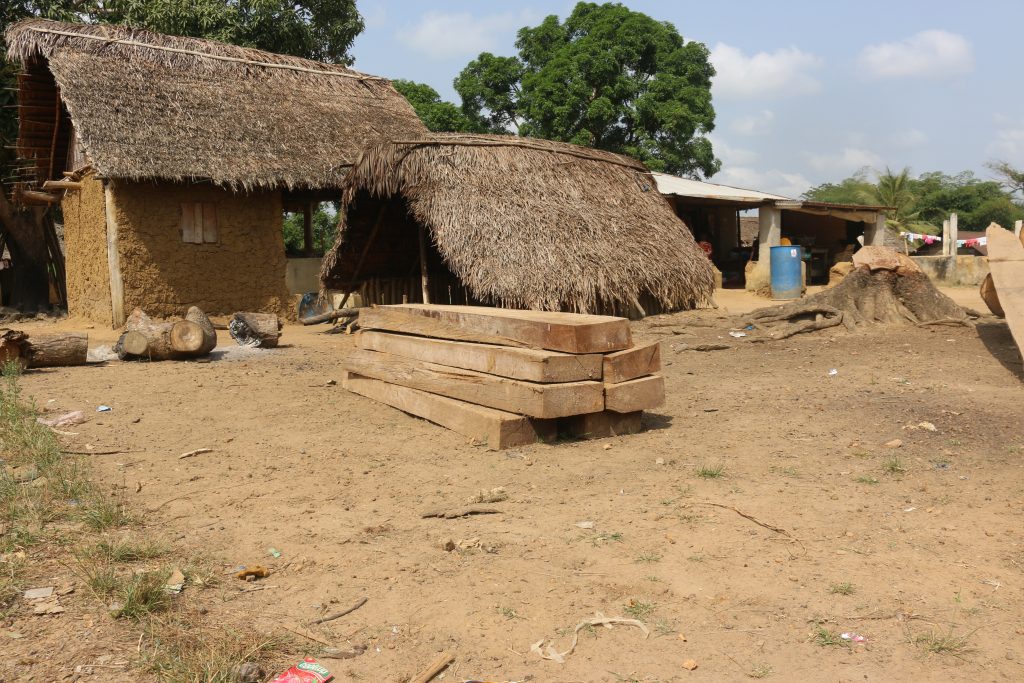
Kelley lodged in a house in the town, where The DayLight interviewed him in December 2022. A middle-aged, light-skinned man, Kelley has been in Gbaryama since September that year, he said at the time.
Dukuly said Kelley asked him recently to harvest kpokolo on his farmland but he disagreed. Kamara and Moses Thompson, another elder, corroborated Dukuly’s account.
“Kelley is here among the [kpokolo operators] but I don’t know whose forest he is working in. They move from one forest to another in search of more woods,” Thompson added.
Kelley’s phone number did not ring when The DayLight tried to contact him. However, in that 2022 interview, he revealed that he had been involved with kpokolo since 2014. He produced kpokolo in Buchanan before coming to Gbaryama.
“Here in Gbaryama, our dimensions were 4X12X9.5 and 4X10X9.5,” Kelley said back in 2022. He meant four inches thick, 10 or 12 inches wide and nine and a half feet long.
But of all the kpokolo operators in Gbaryama, Flomo appeared to be the kingpin. Every farmer or resident The DayLight interviewed said they knew him. Even Kelley said in that 2022 interview Richard was his boss.
Dukuly said he called Flomo recently and informed him to halt the kpokolo operation but his order fell on deaf ears.
“He said, ‘Oh Chief, that one I just want y’all to give us a chance.’
“I said no. If I see it, you will lose it,’” Dukuly said. He added that Flomo tried to convince that it was the kpokolo operators that risked an arrest, not the townspeople.
Korlubah, the chainsaw miller, said he had harvested a container load of kpokolo for Richard in 2022. “There were 250 pieces of Kpokolo, 4X12 and 4X10,” Korlubah said then, confirming Kelley’s story.
“I worked for him in November. He paid me one piece for LD500.”
People said Flomo combed the region in this pickup in search of forest to produce kpokolo. They said it was he who introduced kpokolo to Gbaryama.
Efforts to contact Flomo did not materialize. No one in Gbaryama said they had his contact and Kelley had refused to share it back in 2022.
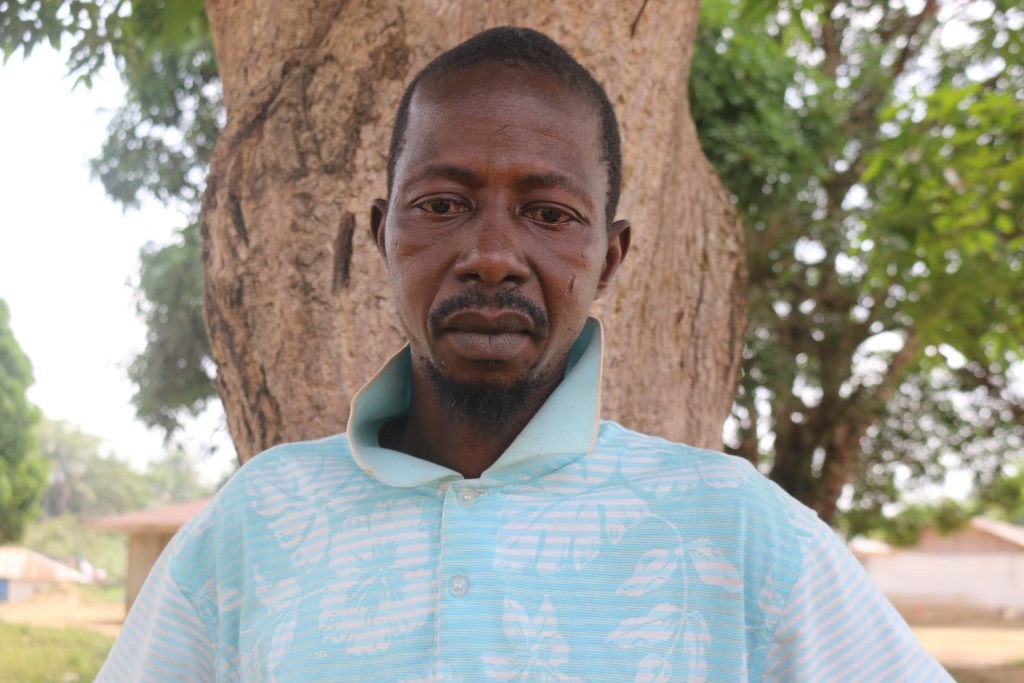
‘There is no ban’
In February last year, said it had banned kpokolo. The unofficial pronouncement followed months of reports of widespread kpokolo activities involving the regulator.
Edward Kamara, the FDA manager for forest marketing and revenue forecast said kpokolo had become “prone to illegal exportation.”
The FDA has not published the ban or made awareness of it, except to discuss it in a meeting on Liberia’s timber trade agreement with the European Union last June. Forest Trends called on the Joseph Boakai administration to officiate, publicize and enforce the ban on kpokolo.
In Gbaryama, people are aware of the so-called ban but chiefs and elders find it difficult to keep the ban.
“If you ban kpokolo in someone’s forest, the forest owner will get vexed [at] you. That person will feel that you want to stop their family’s income,” said Dukuly.
Morris Kamara, the Gbaryama resident, blames the FDA for the illegal activities. “We are getting that information [about banning kpokolo] as rumors. I believe if the FDA banned kpokolo, they could not allow kpokolo to pass [through] their checkpoints.
The FDA has major checkpoints on Bopolu-Monrovia and Tubmanburg-Monrovia highways. There is one each at Sawmill, not far from Gbaryama, and Klay in Bomi—to name two.
“If the people [are] still passing with kpokolo, then it means that [there is no ban] on kpokolo,” Kamara said.
The FDA did not respond immediately to comments. The DayLight will update this story once it does.
[Additional reporting by Gabriel Parker]
This was a production of the Community of Forest and Environmental Journalists of Liberia (CoFEJ). Funding for the story was provided by the Kyeema Foundation and Palladium.

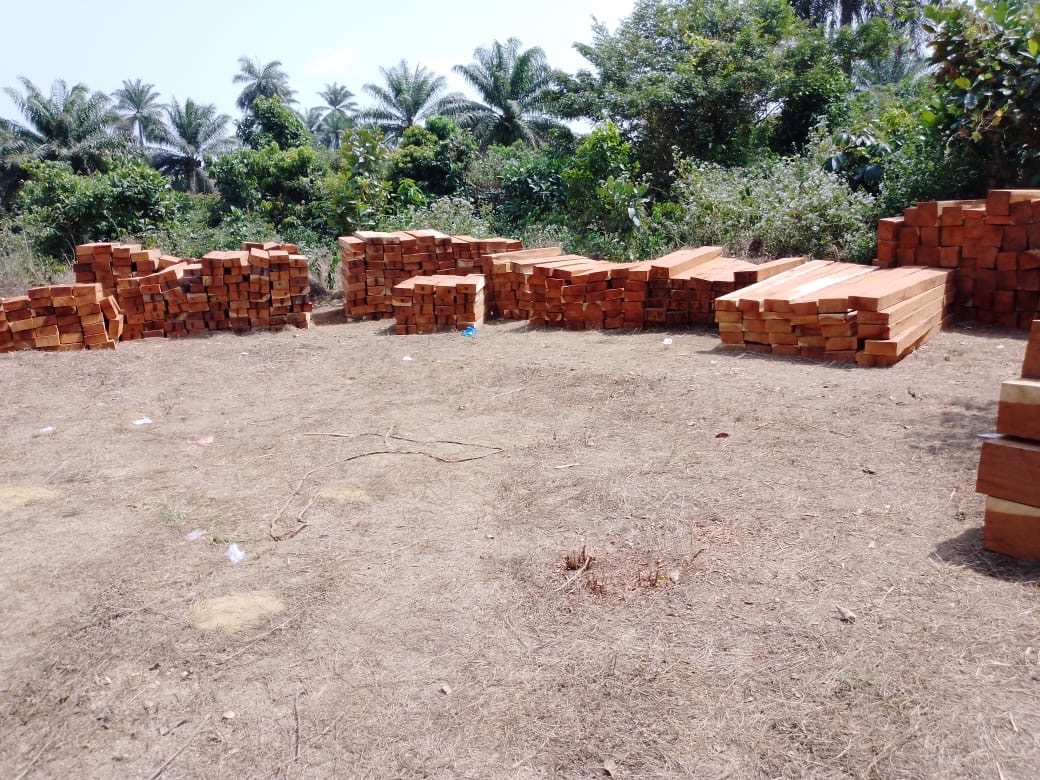

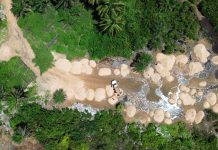
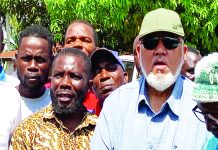
Facebook Comments